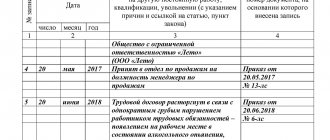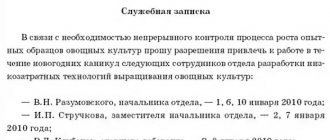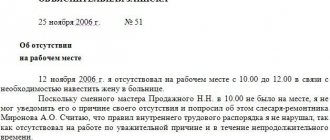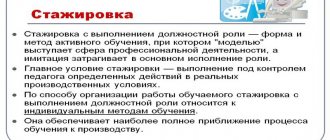Business conversation
Business communication implies the principles and norms of business etiquette aimed at achieving mutually beneficial results. Regardless of the position and functions of the employee, he must be able to clearly express and argue his own thoughts, analyze the thinking of his partner, and form a critical attitude towards relevant opinions and proposals.
As examples of business communication show, a prerequisite is to conduct a conversation and adjust its process, the ability to listen to the interlocutor, persuade and exert a positive influence, create a favorable atmosphere conducive to productive activity and the elimination of conflict situations, while maintaining the norms of professional ethics.
Possible punishments for rudeness at work
Behavior that goes beyond accepted norms always entails consequences. The legal framework provides for three possible types of punishment that an employer has the right to apply to its employees:
- remark (oral);
- reprimand (with execution of an order);
- dismissal as the final disciplinary measure.
Part 5 art. 189 of the Labor Code of the Russian Federation allows in certain situations to apply other sanctions to certain categories of personnel.
NOTE! The degree of punishment must be adequate to the violation: thus, dismissal for a single manifestation of rudeness would be unlawful: from the point of view of the Labor Code of the Russian Federation, one minor disciplinary offense is not yet a reason for dismissal from office.
Telephone ethics
Intonation is of primary importance during a telephone conversation, especially at the beginning and end. Any speech errors, procrastination, or stuttering cause tension or irritation in the interlocutor. And if the tone does not match the content of the information, the interlocutor is inclined to trust the intonation. Before calling, you should formulate the task as briefly as possible and make the necessary notes. After connecting, you need to introduce yourself, indicating your name and company name, and then check with the interlocutor whether he has enough time. Of course, regardless of your emotional state, you should avoid inappropriate behavior in such a way as to openly express your own emotions. But excessive politeness in the form of lengthy thanks can cause impatience and irritation in the interlocutor. Unusual examples of business communication that require careful preparation include cases where the caller needs to be reminded of himself after a long absence, as well as to offer a service to various types of clients whose preferences are unknown.
Inappropriate behavior in the workplace
Boors at work: how to protect yourself
There are several reasons for such phenomena:
- self-defense;
- stressful situation;
- increasing low self-esteem;
- desire to attract attention.
Every employee may experience inappropriate behavior at work. Any participants in the process can become initiators.
If your boss behaves boorishly, you should not behave in response, otherwise there is a high probability of losing your job. It is better to think about the reasons why the behavior became this way. This will make it easier to develop appropriate behavioral tactics. Incompetence and misunderstanding are the most common reasons for inappropriate behavior on the part of managers.
There are a lot of possible answers when colleagues are rude. But you will have to maintain relationships to a certain extent so that the work team and the main process do not suffer.
In the event of rudeness and rudeness on the part of subordinates, the leader must indicate his superiority, but get out of the situation as tactfully as possible. Otherwise, authority and respect from colleagues will be lost.
Inappropriate boss behavior is often considered an insufficient reason to look for new jobs. For some, it is more important to preserve what they have.
There are certain techniques to cope with systematic violations. They help cope with the desire to be rude as a response. Here are just a few possible tactics:
- Fight back as a team. The whole team should gather to have a conversation. Especially when everyone faces a similar problem. The boss will not be able to fire everyone or threaten everyone with committing similar actions.
- Showing respect for one's own personality. You need to maintain good self-esteem. Those who feel good about themselves are less likely to be ridiculed by others.
- No rudeness in response. Some people are just waiting to be answered. You shouldn't stoop to the level of a rude person.
- Don't take words to heart. Maybe they contain constructive criticism?
- Smile. Because of this, opponents begin to doubt themselves. After all, they are accustomed to thinking that they are superior to others.
Features of incorrect behavior
Incorrect behavior implies:
- offensive remarks addressed to colleagues and clients of the company;
- use of profanity in conversation;
- rudeness, abuse of authority, intrusive behavior;
- tactless gestures towards colleagues and clients.
Also, inappropriate behavior of an employee includes violating the established dress code of the organization and wearing inappropriate clothing.
Instructions for employers: how to fire a boor
To exclude the possibility of challenging the dismissal and the forced reinstatement of the rude person in his position, the employer is recommended to comply with all points, documenting each step:
- Establish the normative behavior of employees in a local act, employment contract, job description, Regulations on internal labor regulations - document disciplinary norms.
- Familiarize all staff with the rules of conduct for a personal visa.
- If unacceptable behavior has led to an impact on the work process, it is necessary to draw up a report documenting the violation of the disciplinary norm. The basis may be a review from a dissatisfied client, information from a “complaint” book, a memo from a line manager, etc.
- If you experience rudeness, abuse, scandal or other unacceptable behavior from an employee for the first time, you can limit yourself to a verbal remark (strict reprimand).
- A written complaint or repeated incident of rudeness is grounds for disciplinary action (Article 81 of the Labor Code of the Russian Federation).
- The management must request an explanatory note from the offending employee. If he does not provide it within two days, a statement of refusal is drawn up, which is certified by two signatures.
- Having written evidence of inappropriate behavior and the employee’s own explanations (or refusal of them), management issues a reprimand order. The culprit should be familiarized with the order, and his signature should be obtained. The refusal to sign is also documented in an act - this is evidence of the good faith of the employer who familiarized the employee with the order.
IMPORTANT! The order should mention the troubles or damage caused by the employee’s rude behavior: loss of a client, disadvantages to the company’s reputation, damage to the production process, etc.
- An employee who has a valid disciplinary sanction has the right to be dismissed if he receives at least two more: not necessarily for rudeness, the offense can be anything that violates the requirements of regulations. Even a few delays are enough.
- A repeated reprimand for rudeness is equated to repeated violations of labor discipline, which is a legal basis for saying goodbye to an unsuitable employee.
Don't forget about important nuances
The first thing a manager should remember when formalizing such a dismissal is the timing of the reprimand. A penalty can be imposed no later than a month after the violation was committed. If during this time the culprit went on vacation or sick leave, the terms are slightly delayed, but not longer than six months.
Code of Ethics
The Code of Ethics and Official Conduct is drawn up on the basis of the Constitution of the Russian Federation and is developed in accordance with the principles of professional ethics and rules of conduct for an employee, which he is obliged to study when applying for a position. A set of norms in the form of attitudes towards professional duty are designed to ensure the efficiency of fulfilling official duties and to help increase the authority of employees in the team.
The Code of Ethics and Service Conduct shapes relationships within the workforce. It regulates such concepts as conflicts of interest within the company, abuse of power, data confidentiality, personal integrity, adherence to the principles of healthy competition, and much more. Any citizen of the Russian Federation has the right to expect employees to behave in accordance with their professional ethics.
How to punish an employee for boorish behavior?
This method works especially well on those rude people who lack attention;
- Conversation helps resolve conflicts with those colleagues who are experiencing some difficulties in their lives;
- A joke that will make a boor feel awkward.
How to punish an employee for boorish behavior? The Labor Code of the Russian Federation does not contain clauses that provide for any punishment for a rude employee. However, the employer has the right to establish specific rules of conduct and compliance with business ethics in the company’s internal regulations, in job descriptions, and also indicate them in the employment contract. The employee must be familiarized with these documents against signature.
So, if the necessary rules are spelled out in the documents, the employee can be subject to disciplinary action for displaying rude attitude. For example, reprimand or reprimand him.
Memorandum
Information in the form of a report is intended for senior management in order to bring it to their attention and apply appropriate measures. The difference between a memo and a memo is that the latter has legal force. Any person who was present when an employee behaved inappropriately has the right to file a report against him. In addition to the report, it is permissible to record facts of such violations regarding other employees and business partners.
An official report on inappropriate behavior must include the following items:
- indication of the culprit of incorrect behavior;
- name of the injured party;
- names of those present during the incident;
- other circumstances of the incident.
Report functions:
- solving administrative or production problems;
- proposals to rationalize and improve production;
- notification to management of disagreement with the decision of superiors;
- clarification of circumstances that arose during a conflict with employees or immediate supervisor;
- progress reports;
- complaints regarding failure of subordinates to fulfill their labor duties;
- investigation into improper delegation of responsibilities;
- reporting information about disciplinary violations;
- reporting information about unusual incidents that could result in material losses or physical harm;
- positive nature of events requiring management attention.
How to evaluate rudeness from the point of view of the Labor Code of the Russian Federation
There are no special norms in the labor legislation of the Russian Federation that would require employees to “behave well” in the workplace. This is implied as if by itself. However, since rudeness involves a subjective assessment, it cannot be documented.
The character of an employee and his methods of communication are his own business as long as they do not conflict with the requirements of official documents, such as:
- job descriptions;
- employment contracts;
- internal regulations of the organization;
- Law of the Russian Federation.
From the point of view of labor legislation, rude behavior, depending on its form and consequences, can be legally classified as:
- non-compliance with labor discipline, the rules of which are fixed in the internal policy of the company (Article 81 of the Labor Code of the Russian Federation);
- failure to perform or improper performance of duties due to the fault of the employee (Article 192 of the Labor Code of the Russian Federation).
IMPORTANT! A violation is considered such from a legal point of view if the corresponding norm was adopted in writing and the employee is familiar with it, which is recorded by his signature.
It matters in what area the rude person works and to whom his rudeness is addressed. For example, incomparable incorrect communication with clients in the service sector and dialogues between general workers.
Responsibility and punishment
For inappropriate behavior, disciplinary punishment is provided in the form of a reprimand or reprimand. Dismissal is not permitted in this case, since the actions are not of a one-time serious nature. If, prior to this, a disciplinary punishment has already taken place against this employee within a year, then a repeated reprimand may lead to dismissal, although his offense falls into another category of violations.
The official investigation does not insist on indicating the expressions that were used against the injured party. And if the case is taken to court, then such details should be confirmed, supported by facts with the help of witnesses.
Additional legal characteristics of the phenomenon
In general, Article 5.61 of the Code of Administrative Offenses is devoted to insults. The work environment in the presence of such violations is not considered in separate paragraphs.
Boorish behavior will be considered an insult if the following conditions are met:
- Failure to comply with ethical standards in words or actions.
- The presence of a desire to humiliate the dignity or honor of the victim.
- A violation presupposes the presence of a performer, an addressee. In this case, all parties to the working relationship can play one of the roles - managers, subordinates, outsiders in the form of clients or partners.
When preparing a report of an offense, it is important to determine in advance whether the oral statement was obscene. This detail plays an important role. You can insult using only literary language if the meaning of the words remains obscene.
Recordings from office video cameras also help prove the case. The same applies to a voice recorder turned on during a conversation.
So far, in practice, we rarely encounter lawsuits whose subject is precisely insults. This applies to situations where managers are found to be the culprits. There are articles and notes about insults to doctors in the workplace.
Subordinates either tolerate such treatment to the end, or accept the need to change their current place. Conflicts between participants with approximately equal positions are resolved independently. For this purpose, complaints can be submitted to one of the managers.
Satisfaction of the claim by the court
In addition to the expected punishment under the Labor Code, it is possible to apply paragraphs of Article 152, which reflects the procedure for protecting business reputation.
The lawsuit will be satisfied under the following conditions:
- recognition of a violation of the code of ethics and official conduct;
- the information disseminated concerns the issue of honor;
- discrepancy between information and reality.
In this case, the plaintiff is obliged to provide evidence of the facts of the insult, and the defendant is obliged to confirm what is true.
Reprimand about inappropriate behavior
The inquirer, the investigator, the prosecutor, as well as the court within the limits provided. One of the preventive measures of a criminal procedural nature is a written undertaking not to leave. It is chosen in relation to the accused of a specific crime, and sometimes the suspect in committing this crime. This measure is applied if the crime is of minor or moderate severity, is not dangerous to society and does not imply a punishment in the form of imprisonment. As a preventive measure, a recognizance not to leave is essentially a restriction of freedom of movement for the accused or, for now, only a person suspected of committing a crime, which prevents his possible departure in order to hide from the investigation and avoid punishment. Good afternoon. Please tell me, my husband is now under a written undertaking not to leave the country under Article 228.1.
Professional ethics in macro perspective
Professional ethics can include a system of specific moral norms and principles, taking into account the characteristics of a certain professional activity, which ensures confidential communication.
Several large-scale areas can be identified as consequences of unethical behavior.
- Corrupt practices. This type of action limits freedom of choice and makes changes to the conditions for decision-making. The employee is then able to increase his benefit through unearned income. Bribery leads to the redistribution of resources in favor of less promising options.
- Compulsion. Coercive actions prevent the development of relationships between a certain seller and customers, aimed at stimulating the purchase of specific services or products, which is why competition is untenable. As a result, there is an increase in prices, a decrease in the quality of available products, a narrowing of the range, and a reduction in demand. Fewer resources go into production than would be available under unlimited competition.
- Unreliability of information. Distortion of information about a product leads to consumer dissatisfaction and disruption of subsequent deliveries and production cycles. The consequence of unreliable information is unjustified expenditure of funds.
- Theft. Theft increases the cost of services and products, since damages are compensated for by rising prices. The result is an increase in prices and irrational redistribution of resources, a shortage of products.
Psychology and ethics of business communication are components of a complex of basic sciences, based on the principles of most of them. And if the success of society does not depend on one individual, then the success of the company affects the subject and society. Thus, personal development, relationships within an organization, the success of an enterprise and social development are interconnected, so professional ethics always remains relevant.
Boorish colleague: who is to blame and what to do
It is not uncommon for a situation to arise where one employee engages in unacceptable behavior towards another colleague. The offended person asks for protection from his superiors, and when he doesn’t receive it, he quits. Is management to blame in this case?
From a universal point of view, it is possible, since the internal atmosphere is a consequence of the employer’s attitude. But from a legal position there are no grounds for the employer’s guilt. Guilt is a violation of certain legal norms. The Labor Code of the Russian Federation does not require the employer to provide the employee with comfortable psychological conditions for work.
The only exception is Art. 22 of the Labor Code of the Russian Federation on labor protection requirements. If rudeness directed at a specific employee causes health problems and this can be proven, the company may share responsibility for compensation for moral damage. In practice, such precedents are extremely rare in courts.
REFERENCE! It is easier to recover damages from the offender himself, but this is already the competence of the Civil Code.
What is insult according to the law?
Before complaining about the dissolute behavior of a co-worker, you need to know what exactly you were insulted - this is the first thing, and also what you want to achieve and what are your chances of restoring justice - secondly.
The fact is that this issue, even though it is reflected in the current code, is very subjective and not fully covered. According to the norms of administrative legislation (Article 5.61 of the Administrative Code) , this term means public humiliation of honor and human dignity expressed in an indecent form.
Article 5.61. Insult
- Insult, that is, humiliation of the honor and dignity of another person, expressed in an indecent form, entails the imposition of an administrative fine on citizens in the amount of one thousand to three thousand rubles; for officials - from ten thousand to thirty thousand rubles; for legal entities - from fifty thousand to one hundred thousand rubles.
- An insult contained in a public speech, a publicly displayed work or in the media shall entail the imposition of an administrative fine on citizens in the amount of three thousand to five thousand rubles; for officials - from thirty thousand to fifty thousand rubles; for legal entities - from one hundred thousand to five hundred thousand rubles.
- Failure to take measures to prevent insult in a publicly displayed work or in the media entails the imposition of an administrative fine on officials in the amount of ten thousand to thirty thousand rubles; for legal entities - from thirty thousand to fifty thousand rubles.
But the fact is that different people have different approaches to this. For example, a boss, having learned about, to put it mildly, unqualified behavior of his subordinate, told him what he thought and called his actions stupid.
Is this an insult or just getting personal? After all, the boss did not use any taboo words. And if after that you began to argue with him, then his words correspond to the truth, because in this case it is you who demonstrate incorrect behavior.
It’s another matter if you heard swear words or swear words addressed to you.
Differences from service and explanatory
In addition, it is worth distinguishing between the purposes of different types of internal organizational document flow and submitting a report when you can get by with a simple “service”.
It is often confused with service and explanatory, however, despite the similarity, replacing one with the other is unacceptable due to their purpose and distinctive specificity.
Distinctive features of a memo from a memo: type of statement - an official memo is strictly an internal document, while a memo is a document both internal and external, and can be sent to authorities outside the organization.
An internal memo provides a relationship at the horizontal-direct level “boss – employee of the same level”, and a memo – at the vertical-service hierarchy “employee-boss”.
A memorandum differs from an explanatory note in the semantic presentation and structure of the document. The explanatory statement consists of two parts, one of which reflects the fact that initiated its preparation, and the second explains why specific circumstances occurred.
Any employee who was present during the unusual situation or the one to whom this behavior was directed has the right to draw up and submit a report.
The report, in contrast to the explanatory and official report, is sent exclusively to higher management, authorized persons, and superiors. Information from the content is precisely intended to cause some kind of active action, which one depends on the goal, information and wishes.
The punishment may be:
- a written reprimand followed by a fine or dismissal;
- reprimand followed by a fine or dismissal;
- dismissal due to insufficiently conscientious attitude towards work or repeated warnings and reprimands.
Important: upon the first violation, dismissing an employee due to an insufficiently conscientious attitude towards work or towards the team without conducting conversations with him, warnings and issuing punishments is unlawful and illegal!
No other types of punishment are allowed. But each individual organization has the right to apply its own measures, which it deems necessary, within the limits of admissibility and norms.
Such measures must be specified in the employment contract with the employee or in a list and explanation of the internal rules of labor regulations and behavior in the team. The employee must be familiar with these requirements in advance.










